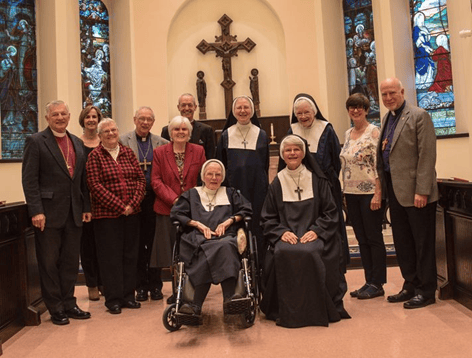NEW YORK – Pope Francis’s decision to restrict celebration of the Traditional Latin Mass in July, says Cardinal Blase Cupich, was grounded in uniting the global church around a “single and identical prayer” that is the contemporary Mass.
Cupich, the archbishop of Chicago and one of Pope Francis’s closest U.S. allies, made the comments in a Nov. 1 post to the Pray Tell blog titled “The Gift of Traditionis Custodes,” where he goes in depth about his support for and importance of Pope Francis’s decision.
Embedded in the reason for unity, Cupich makes the case against any use of the pre-Vatican II Traditional Latin Mass after the Vatican II reforms because “the word ‘reform’ means … that we leave behind a former way of celebrating the sacraments and adopt a new form.”
Cupich notes that when other reforms occurred in the Church the former practice was left behind. He cited Pope John Paul II’s reformation of the Code of Canon Law of 1917 “to [ensure] it conformed to the teachings of the Second Vatican Council,” and John Paul’s 1993 reformation of the Catechism of “bringing it up-to-date in view of the theological insights of the council.”
“No one would think of arguing that the earlier forms of the Code or the Catechism could still be used, simply because the word reform means something,” Cupich wrote. “And so it has to mean something with regard to the liturgical form.”
Pope Francis tightened permission for the celebration of the Traditional Latin Mass in a motu proprio, meaning an addition to Church law issued on the pope’s own authority. It’s titled Traditionis Custodes, meaning “Guardians of Tradition.”
Under the terms of the ruling, priests have to get permission from their bishop to celebrate the Traditional Latin Mass; any priest ordained from here on out who wishes to celebrate the Mass must submit a formal request to their bishop, and the bishop will then consult the Vatican before granting permission. Pope Francis also tasked bishops with determining specific times and locations where the Traditional Latin Mass can be celebrated, which a number of bishops have determined in recent months.
It’s unclear what specifically Cupich has done in the Archdiocese of Chicago.
Traditional Catholics have criticized Pope Francis’s decision. Cameron O’Hearn, who coincidentally was advertising episode one of his three-part documentary on the Traditional Latin Mass when the announcement was made, told Crux he was “confused and hurt” by the decision. He noted that the majority of Catholics that attend the Traditional Latin Mass aren’t going because “they reject Vatican II or even reject the new Mass,” but because “they just love” it.
A Pew Research Center study on the topic conducted from Sept. 20-26 found that of Catholics surveyed that attend Mass at least weekly 29 percent disapproved of Pope Francis’s decision, 11 percent approved, 17 percent had no opinion, and 42 percent were unaware of the change.
The blog post was Cupich’s first comments on Pope Francis’s decision, which he said he made in response to priests in the archdiocese who asked how the archdiocese was going to respond to the motu proprio, and what insights it can offer about the liturgy.
Cupich gave three important guiding principles for implementing Traditionis Custodes.
The first is unity within the Church. Second, by Cupich’s estimation, is that there needs to be a recognition from all Catholics that the Second Vatican Council reforms are in continuity with the tradition of the church. The last guiding principle, Cupich wrote, is the role of the bishop as the sole moderator, promoter and guardian of all liturgical life in each diocese.
“Pope Francis, by issuing [Traditionionis Custodes], has returned competency to the local bishop for the regulation of the use as an exceptional concession of the former liturgy,” Cupich said.
The cardinal later adding that “pastorally fulfilling the aims of [Traditionis Custodes] will require that we as pastors accompany the people in coming to an understanding of the link between the way we worship and what we believe, keeping in mind the Holy Father’s desire that pastors are to lead the faithful to the sole use of the reformed liturgical books.”
“I believe we can use this opportunity to help all of our people come to a fuller understanding of the great gifts that the council has given us in reforming the way we worship,” Cupich concluded.
Follow John Lavenburg on Twitter: @johnlavenburg















